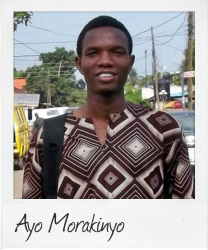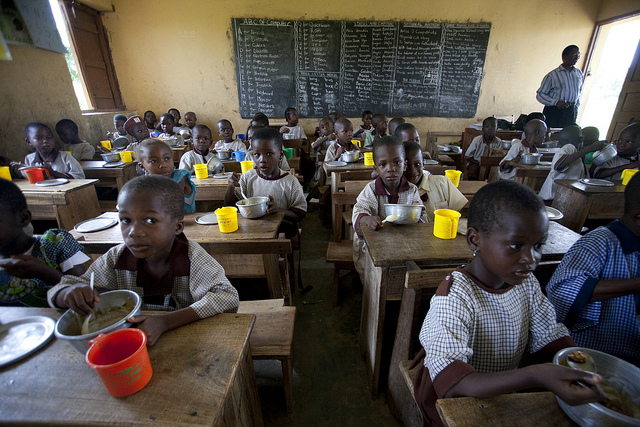“Tackling education issues in Nigeria’s North”
August 7 Northern Nigeria has a dismal record when it comes to education, writes Ayo Morakinyo, 26, a Commonwealth Correspondent from Nigeria. He says a change in parental attitudes and government approach is needed.
Northern Nigeria has a dismal record when it comes to education, writes Ayo Morakinyo, 26, a Commonwealth Correspondent from Nigeria. He says a change in parental attitudes and government approach is needed.
Sometime in June this year I was shocked while watching an interactive exposition on primary school education in Nigeria on television.
According to the data aired, the cut-off score for the indigenes of Yobe state who aspire to gain admission into Federal government colleges was set to two for male candidates and 27 for female candidates respectively. It was not an error. According to the show’s participants, board of education staff in the state actually sat to make this decision.
I have interviewed a couple of ex-corps members who served in the Northern part of Nigeria to know more facts. The reality is unfortunate as six out of every seven ex-corps members attested to a high level of flippancy and disregard for education among young Northerners in the country. Except if inspired to esteem education or forced to attend school, an average Northern teen in the rural region would rather go to play in the fields or work at the farm than come to class. Apparently they hardly do their homework and are uncooperative with young teachers. It was even said that because the students are usually mature in age compared to their grade in school, they are quite disrespectful and ready to ruthlessly deal with any strict teacher outside the school premises.
While it is easy to blame the government for this anomaly, some parents in the Northern region have really failed to inspire their wards to value education. In several cases, parents are the primary source of their children’s discouragement. When they do not monitor the educational performance of their children, it becomes easy for those children to play truant, waste their teachers’ efforts or even drop education. In some other cases, parents instruct their wards that education is secondary to the work they do with them at the farm or at home. These ideas should be changed.
On the part of the government, there is a need to identify and leverage the factors that are critical for promoting education in the Northern region. Conducive classrooms, available teachers and free lunch packs may encourage mass learning, but the commitment of the recipients of education is probably more important. There have been cases in the remote parts of Lagos state where students learn happily under imperfect conditions and apply the knowledge instilled by education to their lives. The government should realise that the provision of free education to unwilling and discouraged students would mainly result in a waste of efforts.
Therefore, governments of Northern states must seek efficient means of influencing parents to value, and perhaps apply, education individually. Parents too should be helped to discover that an educated mind is an empowered one. If more parents are educated, more children will be challenged to do likewise.
To tackle the problem of poor educational performance in Northern Nigeria, both parents and their children should be enlightened to adopt education. In this wise, the government should form a pact between adult education professionals who originate from Northern states, and seek means of aligning education with farming, herding, trading and other forms of occupation pursued by the Northerners.
photo credit: Gates Foundation via photopin cc
…………………………………………………………………………………………………………………
About me:
I am an animated and artistic writer hailing from the southwest region of Nigeria. I hold a degree in electronics and electrical engineering and am certified as an IT professional.
On days when I am not busy with engineering and management activities, I write prose poems, short stories and journalistic commentaries. In the coming years, I hope to help other people’s lives around the world and aid in the reformation of Africa.
…………………………………………………………………………………………………………………
Opinions expressed in this article are those of the author and do not necessarily represent the views of the Commonwealth Youth Programme. Articles are published in a spirit of dialogue, respect and understanding. If you disagree, why not submit a response?
To learn more about becoming a Commonwealth Correspondent please visit: http://www.yourcommonwealth.org/submit-articles/commonwealthcorrespondents/
…………………………………………………………………………………………………………………




